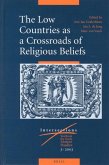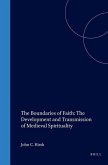The changes associated with reformed Catholicism in the decades around 1600, and how they affected men and women, can only be understood by looking at the interactions between politics and social and religious requirements on a local level. This study, first of all, sketches the Austrian rural territory that will be analyzed. Next, the local administrative disputes are outlined. The third chapter looks closely at one monastery estate, while chapter four details the administrators responsible for the implementation of policies. The concluding chapter concentrates on the experiences of women. Religious, cultural, and women's historians, interested in rural social transformations in the early modern period, will find this an important book. The political landscape, which stretched from the Council of Trent to the bodies of pregnant girls, proved to be exceedingly complex. This local study of the Counter-Reformation makes use of a variety of previously unexamined, archival sources.
Hinweis: Dieser Artikel kann nur an eine deutsche Lieferadresse ausgeliefert werden.
Hinweis: Dieser Artikel kann nur an eine deutsche Lieferadresse ausgeliefert werden.








